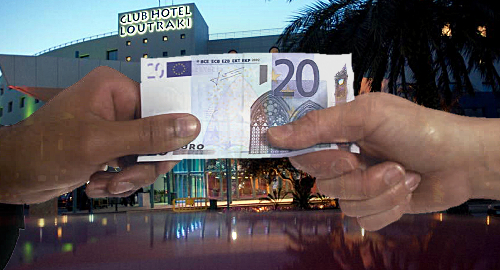 Greek gaming regulators have shut down the Club Hotel Casino Loutraki, strongly suggesting that the government isn’t taking a recent court defeat as the final word on the subject.
Greek gaming regulators have shut down the Club Hotel Casino Loutraki, strongly suggesting that the government isn’t taking a recent court defeat as the final word on the subject.
On Monday, the Greek Gaming Commission ordered Casino Loutraki to close its doors to the public after the casino’s operator failed to remit a €250k gambling revenue tax payment. The casino is required to pay 35% tax on each day’s gaming revenue, but no payments have been made since the month began.
Local media outlet Parapolitika reported that the casino was under the impression that the €44m tax refund (€36m plus interest) the casino was awarded last month by the Tripoli Administrative Court of Appeal negated the casino’s requirement to maintain its usual tax payment schedule, at least until the government actually paid its bill.
Not so, said Gaming Commission chair Evangelos Karagrigorou, who claimed that it was not the Commission’s responsibility to “make the set-off required by the casino.” Karagrigorou also noted that court decisions on tax refund court decisions aren’t final until two months after the ruling is issued, and the government is reportedly planning to appeal the ruling.
Karagrigorou insisted that the Commission wasn’t acting as the vengeful government’s muscle, and said the Commission’s hands were tied on this golden rule of gaming: don’t pay your taxes, don’t open for business. The casino will remain closed until the overdue taxes are submitted.
The court case involved a challenge to the government’s 1996 decision to hike Casino Loutraki’s gambling tax rate from 20% to 33% (plus a 2% municipal kickback). The ruling in Loutraki’s favor covered only the years 2008-11, and the court has yet to decide on a similar challenge involving taxes paid by the casino in the years 2012-15.
The tax burden contributed to the Loutraki venue shutting down in 2015. Last November, a bankruptcy court forced the casino’s creditors to take a 40% haircut on their outstanding receivables, while the casino was given 15 years in which to make good on its debts.
Greece is still actively trying to liberalize its gambling market, approving new casino legislation and planning a tender for a casino in the country’s first major integrated resort project. The country is also still slogging through the process of authorizing new online gambling licenses, which has brought its own back-tax demands of would-be licensees.